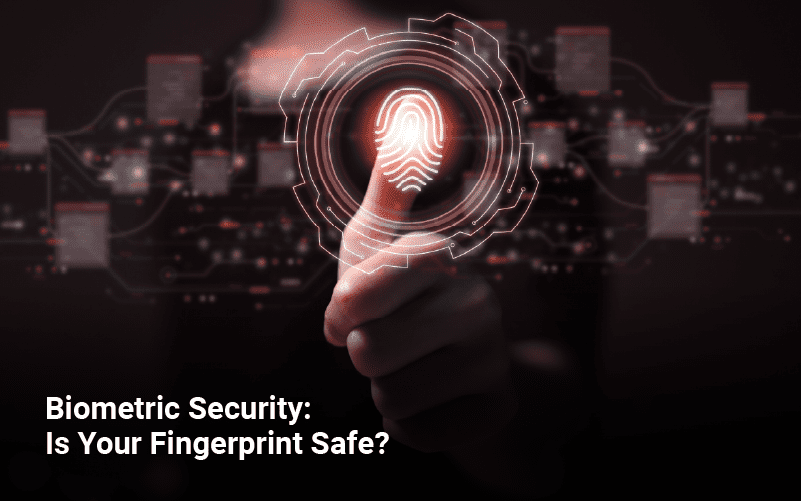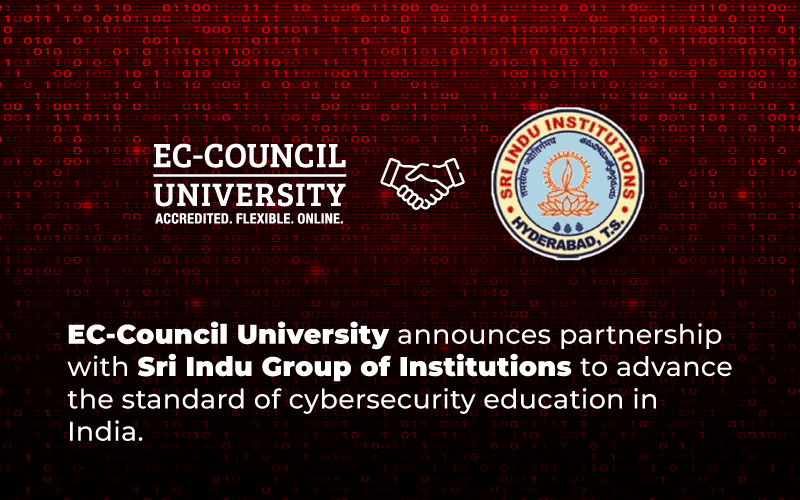How a Master’s Degree from EC-Council University Can Advance Your Cybersecurity Career
The global cost of cybercrime is estimated at more than USD 1 trillion annually (McAfee, 2020). Cybersecurity breaches not only result in financial losses and damaged reputations but can also compromise national security.
As a result, cybersecurity professionals are in demand to help organizations develop and implement practices to ensure that their data and networks are safe from cybercriminals. The high demand for professionals in this field means that cybersecurity is a great career path.
Why Should You Choose a Career in Cybersecurity?
Given the shortage of qualified cybersecurity professionals, earning a degree or certification in cybersecurity is well worth the effort and investment. The following are just a few reasons to pursue a career in this field.
Job Security
Because of the shortage of qualified cybersecurity professionals, job security in the field is strong. Given that businesses experienced a 27% increase in data compromises due to cyberattacks in 2021 (Identity Theft Resource Center, 2021), today’s employers are committed to hiring and retaining qualified professionals to help prevent and protect against such attacks.
Great Pay Package
Organizations need skilled cybersecurity professionals to safeguard their data and protect their assets from cyberattacks. The large number of open positions for professionals with IT and cybersecurity skills means that employers are offering competitive salaries to hire and retain valued talent. According to PayScale (2022), the annual average salary for professionals with cybersecurity skills is USD 92,000.
Career Growth and Progression
The cybersecurity field offers numerous opportunities for professional growth in a variety of settings, and acquiring in-demand cybersecurity skills can allow you to grow and progress in this field. Cybersecurity professionals are highly sought after today in both the public and private sectors. With the right skills and training, you could pursue a position as a cybersecurity consultant, cybersecurity specialist, security architect, security auditor, penetration tester, or network administrator.
Watch: A Leadership Career in Cybersecurity by Jay Bavisi
How to Get Started in Cybersecurity
How can you start positioning yourself for a cybersecurity career? Industry certifications and degree programs are a great way for beginners to build a strong foundation or current professionals to enhance their existing skill sets.
One of the best ways to gain the skills needed for a career in this field is to pursue a master’s degree in cybersecurity. There are numerous cybersecurity degree programs, and it’s important to choose one that is accredited and respected in the industry to improve prospects with potential employers.
Pursuing a Master’s Degree in Cybersecurity at EC-Council University
EC-Council University (ECCU) offers various master’s program specializations designed to prepare students for a range of cybersecurity careers by developing their technical expertise as well as their leadership and management skills. Candidates with a background in information technology who are interested in obtaining senior-level positions can opt for ECCU’s Master of Science in Cyber Security (MSCS).
The MSCS program, which is designed to be completed in 2 years, focuses on industry-relevant skills aligned with real-world executive roles. The MSCS degree offers five specializations that candidates can choose from based on their interests. After completing their chosen specialization, candidates are eligible to work toward receiving up to four industry-recognized EC-Council certifications.
Security Analyst Specialization
Students pursuing the Security Analyst specialization are trained in the strategies and techniques that cybersecurity teams use to detect and reduce risks to companies’ security infrastructures. In this track, candidates gain experience in various security domains, such as ethical hacking, network security, and penetration testing.
Certifications mapped to the Security Analyst specialization:
- Certified Network Defender (C|ND)
- Certified Ethical Hacker (C|EH)
- Certified Penetration Testing Professional (C|PENT)
- Licensed Penetration Tester (L|PT)
Cloud Security Architect Specialization
The Cloud Security Architect specialization gives learners a thorough understanding of all aspects of enterprise-level cloud security. Students will graduate with the skills and knowledge needed to comprehensively strengthen an organization’s cloud security posture by applying best practices for analysis, development, testing, and deployment in cloud environments.
Certifications mapped to the Cloud Security Architect specialization:
- C|ND
- C|EH
- Certified Application Security Engineer (C|ASE)
Digital Forensics Specialization
The Digital Forensics specialization equips graduates with the skill set needed to become a cyber forensic investigator. In this specialization, candidates learn about the various aspects of digital forensics, preparing them for job roles such as chief security officer, cybercrime investigator, and incident responder.
Certifications mapped to the Digital Forensics specialization:
- C|ND
- C|EH
- Computer Hacking Forensics Investigator (C|HFI)
Incident Management and Business Continuity Specialization
The curriculum of the Incident Management and Business Continuity specialization focuses on how to identify and fix system vulnerabilities that can lead to security breaches. In this specialization, candidates are trained in disaster recovery and incident handling, among other skills.
Certifications mapped to the Incident Management and Business Continuity specialization:
- C|ND
- C|EH
- EC-Council Disaster Recovery Professional (E|DRP)
- EC-Council Certified Incident Handler (E|CIH)
Executive Leadership in Information Assurance Specialization
The Executive Leadership in Information Assurance specialization is focused on developing candidates’ skills in project management, global business leadership, IT security management, and executive governance. Graduates will be prepared for executive-level roles, such as chief information security officer (CISO).
Certifications mapped to the Executive Leadership in Information Assurance specialization:
- C|ND
- C|EH
- Certified CISO (C|CISO)
FAQs
Ans. The COVID-19 pandemic increased the susceptibility of companies and individuals to cyberthreats. This increase in security risks has resulted in heightened demand for cybersecurity professionals. Given the high demand for qualified cybersecurity professionals, a career in cybersecurity can offer great pay and job security.
Ans. Numerous opportunities are available in the cybersecurity industry to individuals with the right skill set. IT and cybersecurity professionals with in-demand certifications and skills have many opportunities to advance in the field. A few examples of cybersecurity careers include security consultant, security architect, security analyst, security software developer, and security engineer.
Ans. Cybersecurity professionals with strong technical skills and competencies are always in demand. Organizations need qualified professionals to protect their data and assets from cyberattacks.
Ans. To obtain an entry-level job in cybersecurity, you need to have a passion for the field and (typically) a bachelor’s degree from an accredited university, ideally with coursework in relevant areas like computer programming and networking. However, to access senior-level and higher-paying positions, you may need to acquire additional education, such as a master’s degree in cybersecurity or industry-respected certifications.
Found this article interesting? Follow EC-Council University on Facebook, Twitter, Instagram and LinkedIn to read more exclusive content.
References
Identity Theft Resource Center. (2021, October 6). Number of data breaches in 2021 surpasses all of 2020 [Press release]. https://www.idtheftcenter.org/post/identity-theft-resource-center-to-share-latest-data-breach-analysis-with-u-s-senate-commerce-committee-number-of-data-breaches-in-2021-surpasses-all-of-
McAfee. (2020). The hidden costs of cybercrime. https://www.mcafee.com/enterprise/en-us/assets/reports/rp-hidden-costs-of-cybercrime.pdf
PayScale. (2022, April 6). Salary for skill: Cyber security. https://www.payscale.com/research/US/Skill=Cyber_Security/Salary








